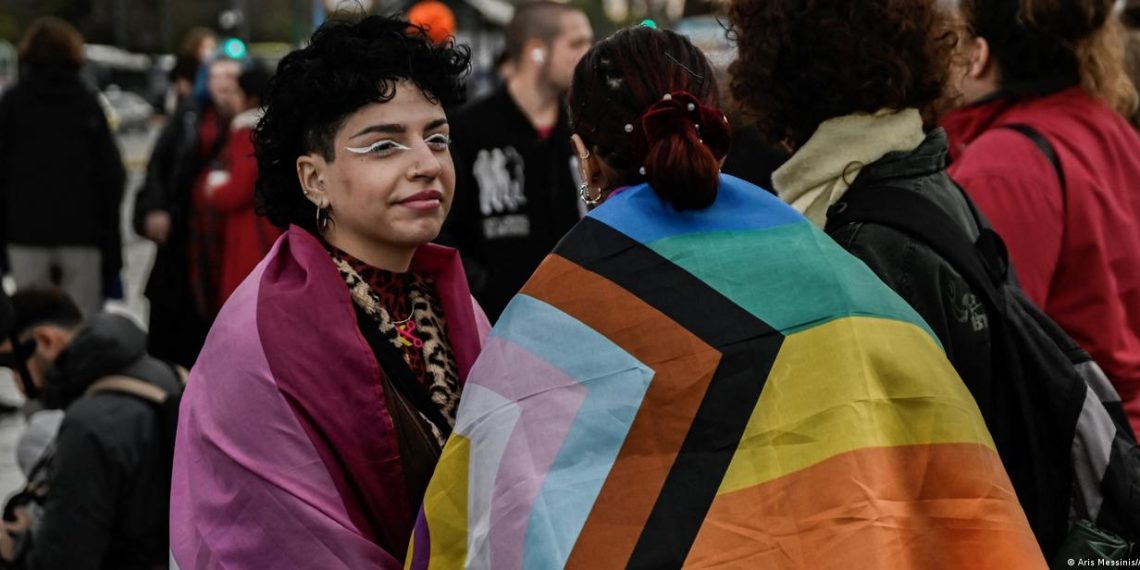Greece achieved a historic milestone as its parliament legalized same-sex marriage, making it the first predominantly Orthodox Christian nation to do so. The legislation, backed by 176 out of 300 lawmakers, symbolizes a victory for human rights, particularly for the LGBTQ+ community.
Prime Minister Kyriakos Mitsotakis hailed the decision as a reflection of Greece’s progressive and democratic values.
The law not only legalizes same-sex marriage but also grants parental rights and adoption privileges to LGBTQ+ couples. This step forward is significant, especially after years of struggle and marginalization for the community.
Andrea Gilbert, a founding member of Athens Pride, expressed the legislation’s importance, highlighting its role in providing legal recognition and protection for LGBTQ+ families.
However, societal divisions and opposition from traditionalists made the path to legalization challenging. The Greek Orthodox Church vehemently opposed the bill, arguing that it prioritized the rights of homosexual adults over the well-being of children.
Crucifix-holding protesters, joined by far-right supporters, rallied outside parliament, reflecting the deep-rooted resistance to change.
Despite the opposition, the passage of the law signals a shift towards greater acceptance and equality in Greek society. The LGBTQ+ community, long marginalized, now feels seen and recognized. For many, like IT student Alexis Rafailides, the vote represents a step towards ending discrimination and embracing diversity.

The political timing of the legislation is also noteworthy, aligning Greece with other European nations and enhancing its human rights image ahead of upcoming European elections. However, there is a political risk, as the far-right opposition vehemently opposed the law.
Yet, for activists and LGBTQ+ individuals like 24-year-old Angelo, the legalization marks a significant victory in their ongoing struggle for equality and acceptance.





